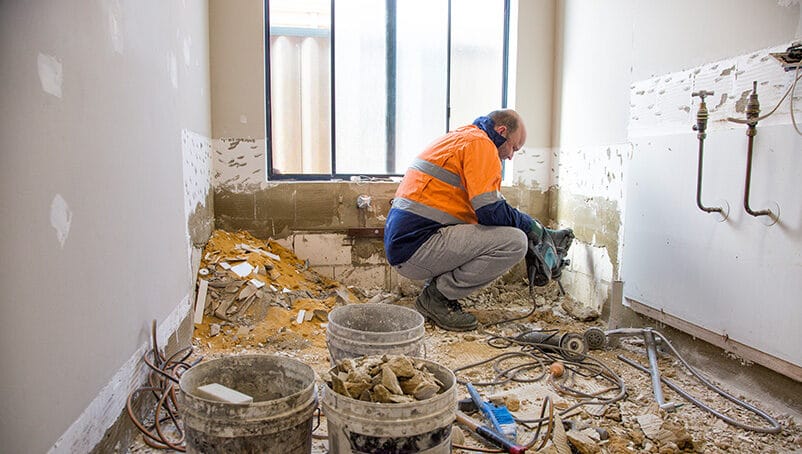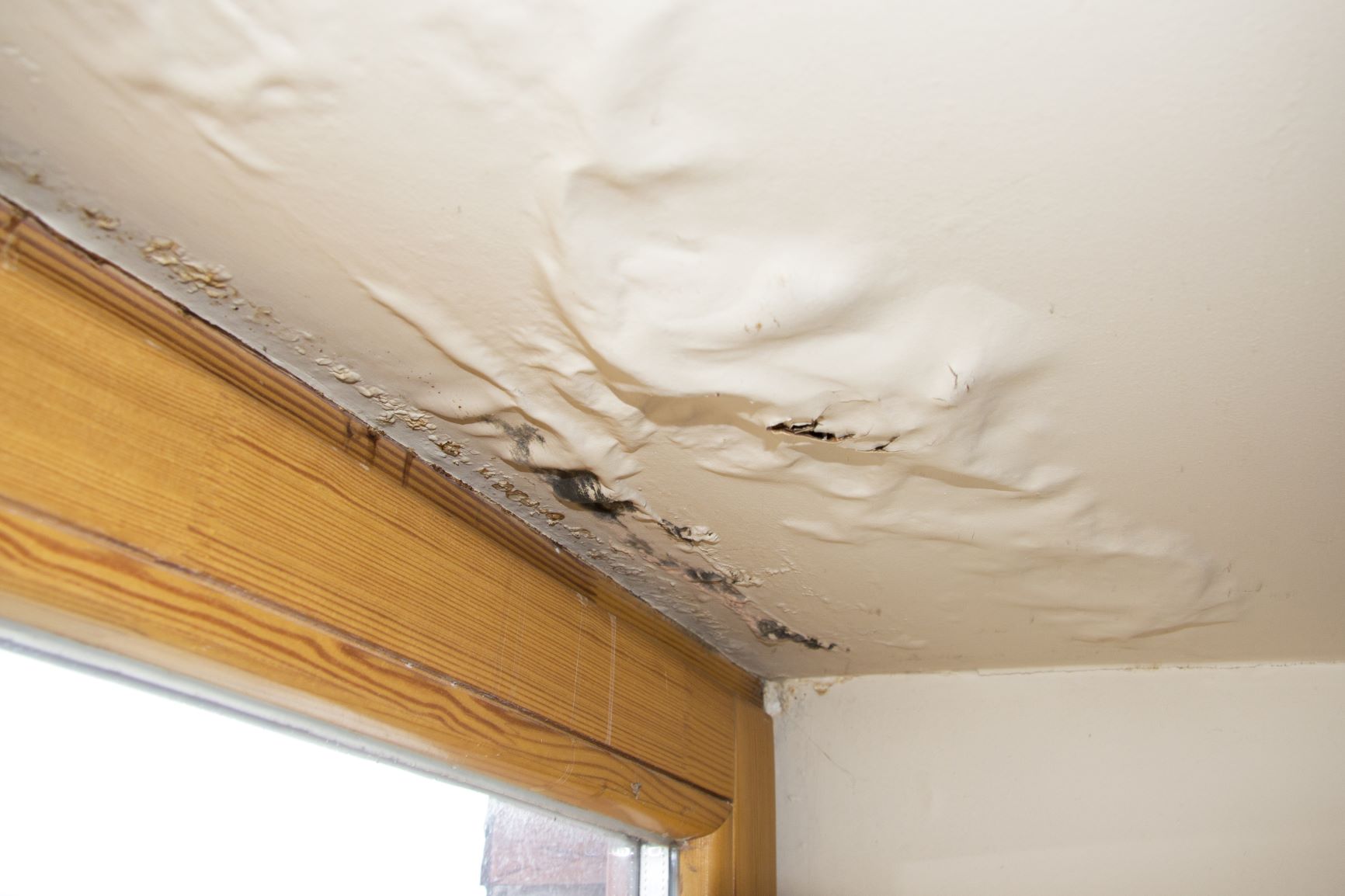Quick Response Emergency Water Leak Repair for Residential and Commercial Needs
Wiki Article
The Refine of Water Damages Cleaning: Ensuring Your Home Is Brought Back Effectively
Water damage can be an overwhelming difficulty for property owners, necessitating a careful and structured cleanup process to bring back security and functionality. damage restoration services. Following this, effective water removal techniques play an essential function in alleviating further damage.Evaluating the Damage
Upon uncovering water damage, the initial step is to extensively assess the extent of the effect. This preliminary analysis is crucial, as it helps identify the needed actions for reliable cleanup and remediation. Begin by inspecting the impacted locations, consisting of wall surfaces, ceilings, floors, and individual possessions, to recognize the source of the water breach, whether from flooding, leakages, or condensation.Documenting the damage is crucial for both insurance coverage claims and preparing reconstruction efforts - damage restoration services. Use photographs and written notes to record the severity of the damages, keeping in mind any type of damaged architectural aspects and materials. Pay unique focus to areas that might not be instantly noticeable, such as behind walls and under rugs, as hidden moisture can cause additional complications, including mold and mildew development
Furthermore, evaluate the timeline of the water direct exposure. Inevitably, an extensive evaluation lays the foundation for a successful water damages clean-up procedure, guaranteeing that all affected areas are resolved efficiently and thoroughly.
Water Extraction Techniques

Professionals commonly use submersible pumps for larger quantities of water, which can quickly relieve flooding in cellars or various other impacted areas. For smaller amounts, wet/dry vacuum cleaners are often used to remove recurring moisture from carpets and difficult surfaces. Additionally, using portable extractors permits targeted elimination in constrained rooms or locations with delicate materials.
In circumstances of infected water, such as sewer or floodwater, advanced removal strategies might include using biohazard tools to make sure security and compliance with wellness laws. High-powered extraction devices are crucial in lessening water retention in structural products, which can cause mold and mildew development and architectural degeneration if not attended to immediately.
Ultimately, the efficiency of water extraction methods plays a crucial role in the general success of the water damage cleaning process, preparing for subsequent repair initiatives.
Drying and Dehumidification
Once standing water has actually been efficiently extracted, the following crucial stage in the water damages cleaning procedure is drying out and dehumidification. This action is crucial to protect against further damages and mold and mildew development, which can occur within 24 to 2 days in damp environments.To attain efficient drying out, customized equipment such as industrial-grade air moving companies and dehumidifiers is employed. Air movers distribute air throughout damp surfaces, enhancing dissipation prices, while dehumidifiers decrease moisture levels airborne, promoting a helpful setting for drying out. The combination of these devices ensures that wetness is extracted from furnishings, wall surfaces, and floors, enabling them to completely dry completely.
It is very important to check the drying process carefully. Specialists often utilize dampness meters to analyze the dampness content in different products, ensuring that all affected areas get to acceptable dry skin levels. This thorough approach helps to protect against concealed moisture pockets that might bring about structural damages or undesirable mold growth.

Cleansing and Disinfecting
After the drying and dehumidification phase is full, the next vital action in water damages cleaning is cleansing and sterilizing the affected locations. This process is important to avoid the development of mold and mildew, germs, and various other microorganisms that flourish in damp settings.The cleansing stage generally entails eliminating any type of debris, dirt, and pollutants from surfaces using specialized cleansing agents. For hard surface areas, a mix of soap and water or commercial cleaning products is often utilized. Soft products, such as upholstery and carpets, might need much more considerable cleaning techniques, consisting of vapor cleansing or deep extraction strategies, to guarantee comprehensive cleanliness.

Sanitizing follows cleansing, making use of EPA-approved disinfectants to eliminate harmful microbes. This action is essential, specifically in areas that might have entered call with floodwaters or sewage, as these sources can present significant health and wellness dangers.
In addition, it is essential to resolve any continuing to be odors, which may need the use of smell neutralizers or advanced techniques like ozone treatment. Appropriate cleansing and sanitizing not only restore the safety and security and health of your home yet additionally lay the groundwork for successful restoration and repair services in subsequent stages of the water damages clean-up procedure.
Restoration and Fixings

When the analysis is total, remediation initiatives can begin. This generally entails repairing or replacing damaged products, making certain that all work follows local building regulations and requirements. If drywall has actually been endangered, it will certainly need to be removed and replaced with new material. Furthermore, flooring may need comparable focus, relying on the degree of water direct exposure.
It is critical to involve seasoned repair specialists throughout this process, as they have the knowledge to deal with intricate repair work efficiently. They can assist alleviate potential future problems, such as mold and mildew development or structural instability, therefore guaranteeing a safe and habitable living environment. Eventually, effective repair and repair work restore the home's stability and boost its overall value.
Final Thought
Finally, the process of water damage cleaning is essential for recovering a home to its pre-damage problem. Each stage, from evaluating the damages to applying effective water extraction methods, complied with by complete drying, disinfecting, and necessary fixings, plays an essential role in guaranteeing water damage repair services safety and compliance with building requirements. Efficient implementation of these steps not just mitigates immediate damage but additionally improves the long-lasting integrity and value of the residential property.Water damage can be a complicated challenge for house owners, demanding a organized and careful clean-up process to restore security and functionality. Eventually, a detailed analysis lays the foundation for an effective water damage cleaning procedure, making certain that all affected locations are dealt with efficiently and extensively.
Reliable water extraction methods are vital in alleviating damages and protecting against further complications complying with a water breach event.In final thought, the process of water damage cleanup is essential for recovering a home to its pre-damage condition. Each phase, from analyzing the damages to applying effective water extraction techniques, adhered to by extensive drying out, sterilizing, and needed fixings, plays a vital duty in making sure security and conformity with structure criteria.
Report this wiki page